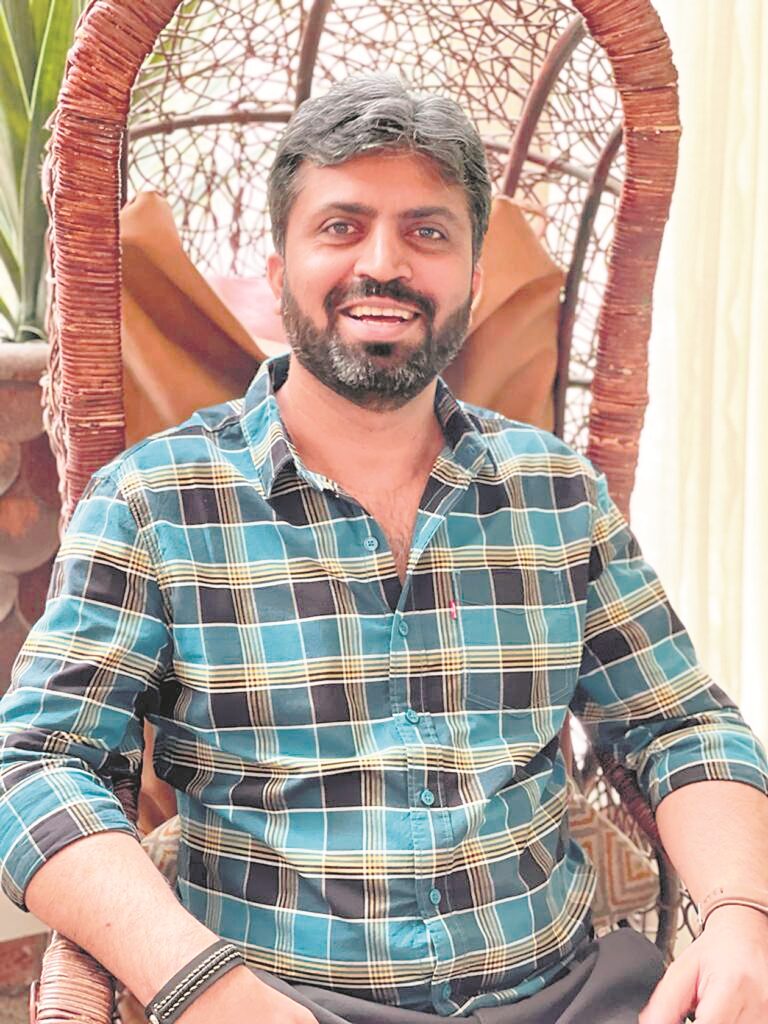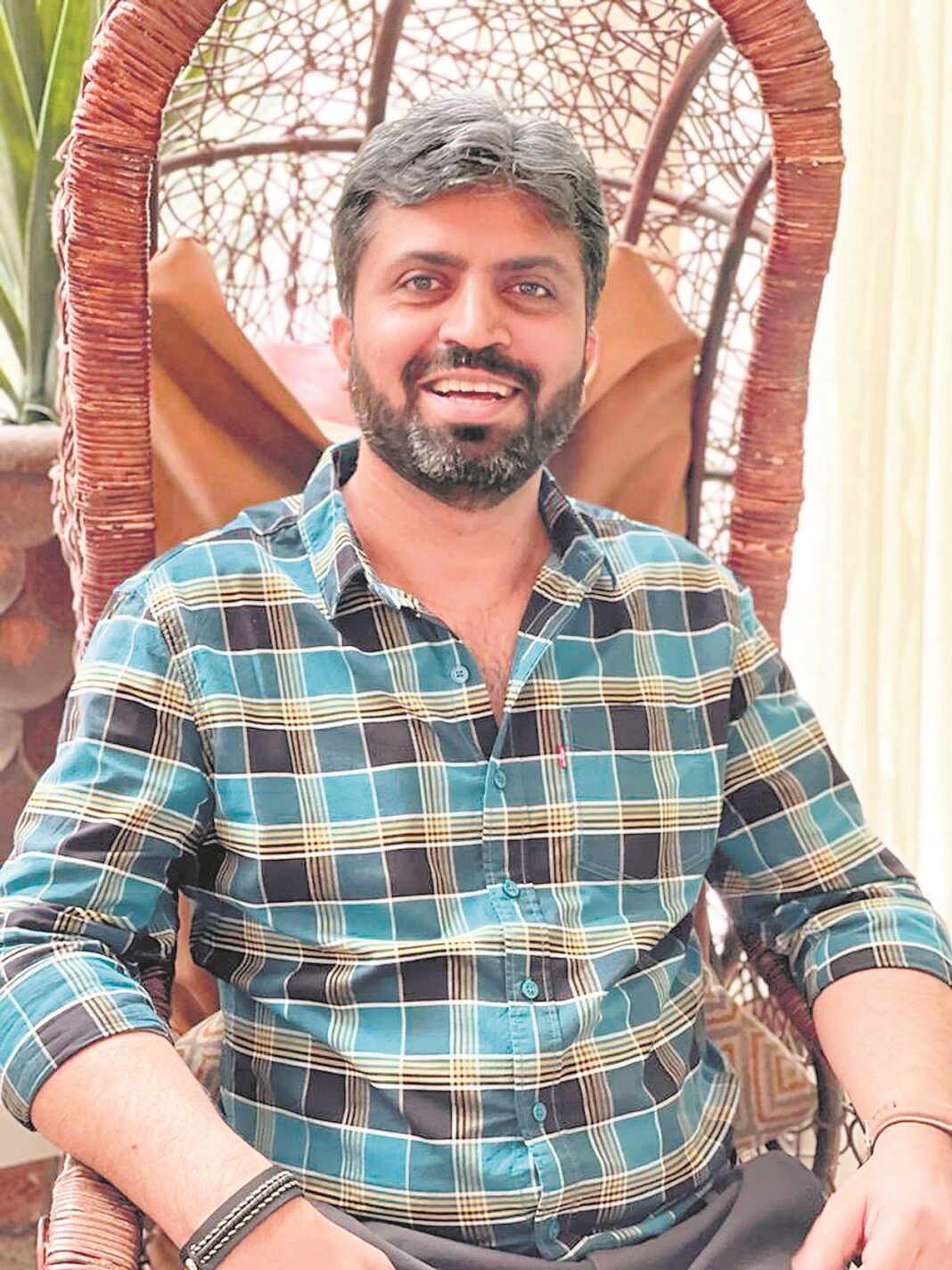After directing the psychological thriller Vodka Diaries and a powerful documentary on the Ram Mandir, Kushal Srivastava is now delving into spiritual storytelling with Samudra Manthan, an AI-driven series produced by Vedshaala. In an exclusive chat with The Pioneer, he opens up about this deeply personal journey—one that is as much about inner transformation as it is about cinematic innovation

Tejal Sinha
After directing the taut psychological thriller Vodka Diaries, filmmaker Kushal Srivastava is now venturing into uncharted territory—a spiritual, metaphorical web series titled Samudra Manthan, rooted in ancient Vedic wisdom and powered by cutting-edge AI technology. But this dramatic shift isn’t just a creative experiment—it’s a personal evolution.
Kushal traces the origin of this transformation to his work on Battle of Ayodhya, a documentary about the Ram Mandir produced by Vedshaala. “During its research and filming, I had the chance to meet many spiritual and religious thinkers,” he says. “That experience changed my approach to life and storytelling. I was also inspired by the vision of our founder, Mr. Sarit Agarwal, who believes that spirituality is a way of life. That vision helped me naturally transition into projects like Samudra Manthan, where the focus is not just storytelling but awakening.”
At the core of Samudra Manthan is an age-old myth interpreted in a deeply symbolic and psychological way. As Kushal explains, the idea was shaped profoundly by the series’ writer, Rishi Nanda, a spiritualist and author. “Rishi realized that the Samudra Manthan actually represents the phase of struggle every human being goes through,” he says. “That metaphor became the heart of the project. He calls it a turning point in his life because it made him a Karma Yogi. That personal perspective deeply resonated with me too.”
This resonance has informed every aspect of the series’ storytelling. According to Kushal, the shift from thrillers to mythology demands not only a new visual language but also a deeper level of responsibility. “Any story worth telling must have depth and meaning,” he reflects. “With mythology, there’s a layered richness of symbolism and metaphor. It demands greater responsibility in both visual and narrative choices—ensuring we preserve the essence while making it relatable to modern audiences. In thrillers, you work more with suspense and psychology. With mythology, it’s about awakening and inner transformation.”
Samudra Manthan is not a literal retelling of the myth. While the ocean, devas, and asuras are central to the original story, the show uses these elements in symbolic, contemporary terms. “The devas and asuras aren’t portrayed in traditional visual formats,” Kushal clarifies. “Instead, they exist metaphorically within people—their virtues and vices. It’s a layered narrative where these mythic elements reflect internal psychological states and societal tensions.”
One part of the story that particularly strikes a chord with the filmmaker is the emergence of the deadly poison—Halahala—from the ocean, and Lord Shiva’s act of consuming it to save the world. “It represents the burden of responsibility and the power of acceptance in the face of pain,” he says. “That’s a deeply spiritual message and something many of us can relate to in our personal journeys.”
What makes this mythic journey even more intriguing is the creative use of Artificial Intelligence. Kushal reveals that the idea of integrating AI into a project rooted in ancient wisdom was driven by Vedshaala’s ethos. “The intersection of ancient wisdom and modern innovation is at the heart of Vedshaala,” he notes. “Our founder Mr. Sarit Agarwal believes that timeless ideas can find new life when presented through contemporary tools. It’s not just about using technology for the sake of it, but about ensuring that the core thought is conveyed meaningfully and responsibly.”
But blending AI with spirituality isn’t without its challenges. Kushal admits there were both creative hurdles and philosophical conflicts. “Balancing reverence with innovation is tricky,” he explains. “You don’t want to dilute the depth of spiritual thought, but you also need to communicate it in a format that today’s generation connects with. Our goal was always to preserve the sanctity while using AI to enhance accessibility and visual impact.”
AI, he adds, has significantly influenced the visual and narrative language of Samudra Manthan. “It allowed us to visualize metaphysical concepts like karma, dharma, and divine balance in ways that would be difficult or expensive through traditional VFX,” he says. “The storytelling is also more fluid and dynamic because AI lets us experiment with abstract forms and symbolism, giving us the power to make the invisible visible.”
Reflecting on his journey from Vodka Diaries to now, Kushal credits Battle of Ayodhya as the spiritual inflection point. “Working on Battle of Ayodhya was a transformative experience,” he says. “Meeting scholars, saints, and local voices made me understand how deeply faith and tradition shape our lives. That emotional and cultural immersion strongly influenced the spiritual direction I’ve taken in recent work.”
Much of this evolution, he believes, stems from his creative partnership with Vedshaala and its founder. “Mr. Agarwal’s belief that spirituality is a way of life has deeply influenced me,” Kushal says. “Vedshaala isn’t just a production house—it’s a mission to rediscover the soul of India through storytelling. Being part of that has made me reflect more, create more consciously, and think beyond commercial success.”
When asked whether he now sees himself as a spiritual filmmaker, Kushal pauses before offering a thoughtful response. “I would say I’m a filmmaker exploring spiritual themes—but perhaps walking toward becoming a spiritual filmmaker,” he shares. “This journey has been as much internal as creative. Every story I work on now carries a sense of purpose beyond just entertainment.”
As Vedshaala continues to explore this confluence of Sanatan Dharma, modern values, and technological innovation, Kushal believes platforms like YouTube will play a vital role. “It’s vital for our youth to stay rooted in their identity,” he says. “As a platform, YouTube facilitates that. Vedaant – The Epic Show brings the piousness of Sanatan Dharma to life through meaningful, relatable storytelling.”
Through Samudra Manthan, Kushal Srivastava is not just telling a story—he’s inviting audiences to churn their own oceans, confront their inner poison, and emerge with clarity, strength, and purpose.




